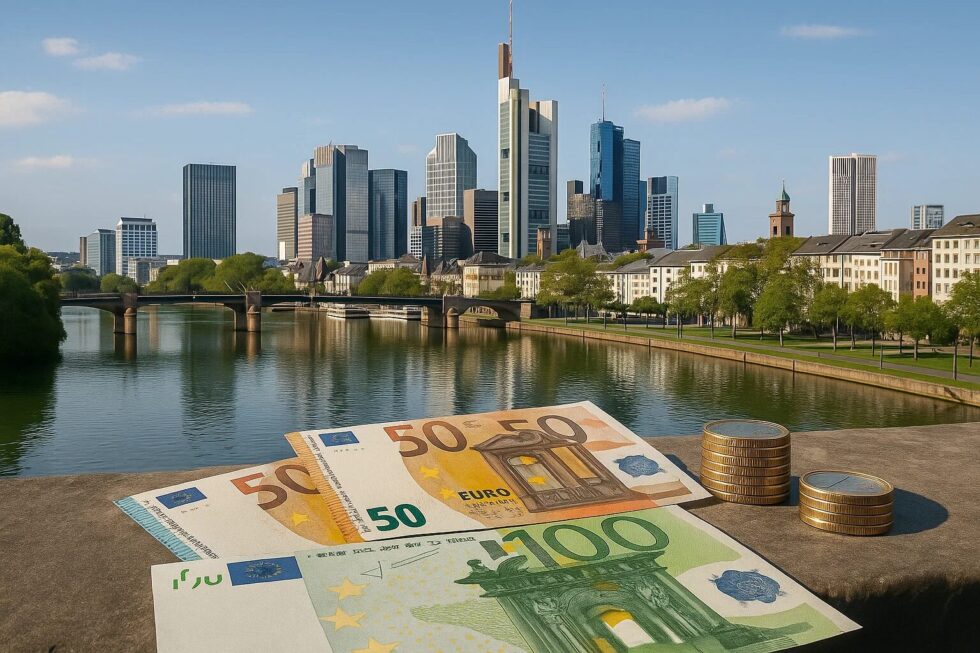Why does Frankfurt remain Europe’s financial hub and what will change by 2030

Frankfurt am Main has been considered the heart of financial life in Germany and Europe for more than a century. The city brings together the largest banks, international corporations, regulatory authorities, and stock exchanges. It is home to the headquarters of the European Central Bank, the Deutsche Bundesbank, and Deutsche Börse, as well as branches of more than 150 foreign financial institutions. Thanks to its central location in Europe, its well-developed transport network, and access to international markets, Frankfurt has become a natural magnet for capital. Even after Brexit, the city succeeded in attracting a significant share of banking operations previously based in London. Experts emphasize that Frankfurt remains a cornerstone of EU financial stability in today’s global competition, as reported by G.business, citing SoFrankfurt
Historical foundations of financial power
Frankfurt has been a trading and banking hub since the 17th century, when its first trade fairs and merchant houses appeared, including the Rothschild dynasty. In the 19th century, it became the birthplace of Germany’s banking system, and by the 20th century it was a center for international currency operations. After World War II, Frankfurt strengthened its role as a key platform for the West German economy, and since 1998 it has hosted the European Central Bank. This concentration of institutions created a unique ecosystem where business, regulators, and academia interact daily. Dozens of research institutes and specialized faculties also operate in the city. As a result, Frankfurt’s financial culture has become deeply rooted and resilient to crises.
Key historical milestones shaping Frankfurt’s role:
- 17th century – trade fairs and early banking.
- 19th century – emergence of private German banks, including Commerzbank (1870).
- 20th century – international currency and stock market operations.
- 1948 – establishment of Deutsche Bundesbank.
- 1998 – relocation of the European Central Bank to Frankfurt.
- 21st century – growing role after Brexit.
Geographic and transport advantage
Frankfurt’s central location in Europe makes it a strategic hub for business. Frankfurt Airport is one of the largest in the world, serving more than 70 million passengers annually and connecting the city to over 300 destinations. The central railway station is the busiest in Germany, with around 450,000 passengers daily. Major motorways A3, A5, and A66 provide direct access to other key economic regions, including the Ruhr and southern Germany. This connectivity allows executives and investors to travel quickly between European capitals. Frankfurt also leads in business hotels and conference facilities, simplifying international corporate meetings. These logistical advantages strongly influence companies’ decisions when choosing headquarters.
Main transport hubs of Frankfurt:
- Frankfurt International Airport (FRA).
- Frankfurt Central Station (Hbf).
- High-speed ICE rail links (Berlin – Frankfurt 4h, Paris – Frankfurt 3.5h).
- Motorways A3, A5, A66.
- Bankenviertel financial district, 15 minutes from the airport.
The role of the European Central Bank
The European Central Bank (ECB), housed in a skyscraper on Sonnemannstraße 20, sets monetary policy for the eurozone. Key decisions on interest rates, crisis response, and bank supervision are made here. The ECB employs around 4,000 staff from more than 20 countries, creating a unique concentration of expertise. Its policies directly impact exchange rates, credit costs, and economic stability across the EU. This attracts journalists, researchers, and business representatives eager to remain close to decision-making. The ECB’s presence has firmly established Frankfurt as the “brain center” of European finance.
Main ECB functions:
- Setting key interest rates.
- Controlling inflation across the eurozone.
- Supervising systemically important banks (via SSM).
- Issuing euro banknotes and managing cash circulation.
- Implementing crisis measures (e.g., PEPP during the pandemic).
Major banks and the stock exchange
Frankfurt is home to Deutsche Bank, Commerzbank, DZ Bank, KfW, and dozens of foreign giants such as JPMorgan, Goldman Sachs, and Citibank. More than 150 foreign banks operate here. Deutsche Börse runs the Frankfurt Stock Exchange (Frankfurter Wertpapierbörse), where global companies are listed. Trading is conducted via Xetra, one of Europe’s most advanced electronic systems. In 2023, total turnover exceeded €1.6 trillion. Frankfurt is also the clearing hub for Eurex Clearing and Clearstream, making it a safe haven for investors’ capital. This strong banking ecosystem underpins business lending and innovation financing in Germany.
Key Frankfurt financial institutions:
- Deutsche Bank, Taunusanlage 12.
- Commerzbank Tower, Kaiserplatz.
- KfW Bankengruppe, Palmengartenstraße 5.
- Deutsche Börse Group, The Cube, Eschborn.
- DZ Bank, Platz der Republik.
Brexit and the migration of capital
Following the UK’s exit from the EU in 2020, Frankfurt emerged as the main beneficiary of financial relocation. Over 60 international banks moved part of their operations from London to Frankfurt, including Standard Chartered and Nomura. This shift created about 10,000 new jobs in the city. Derivatives trading and clearing — previously concentrated in London — expanded significantly. Frankfurt offered the regulatory framework of the EU, strong infrastructure, and a skilled workforce. As a result, it cemented its status as Europe’s primary financial hub within the eurozone, while London retained global importance.
Key Brexit effects on Frankfurt:
- Relocation of bank branches from London.
- Growth in financial sector employment.
- Expansion of stock exchange and clearing business.
- Increased tax revenues for the city.
- Development of new office and conference facilities.
Innovation and the fintech sector
Frankfurt is actively building its digital finance ecosystem. The city hosts the “FinTech Hub” supported by Deutsche Börse, where over 80 startups operate. These include Solarisbank, Clark, and Raisin, which focus on online banking, insurance tech, and investments. Frankfurt is also part of the European initiative to develop the digital euro. Goethe University and the Frankfurt School of Finance and Management supply talent for this growing sector. This means Frankfurt is not only a center for traditional banking but also a hub for the future of finance. Its fintech community attracts entrepreneurs, investors, and venture funds.
Fintech strengths in Frankfurt:
- Online and mobile banking.
- InsurTech solutions.
- Crowdfunding and peer-to-peer lending.
- Cryptocurrency platforms.
- Digital euro development.
Quality of life and international community
Frankfurt combines business dynamism with high living standards. The city ranks among the top 10 worldwide for safety and infrastructure. More than 180 nationalities live and work here, making it one of Germany’s most international cities. Its education system includes international schools, while its healthcare and cultural offerings attract expatriates. Districts like Westend and Sachsenhausen are especially popular with finance professionals. Frankfurt’s rental housing market is complemented by new residential and office projects. This balance of work and lifestyle ensures that Frankfurt remains attractive to global business talent.
Key quality-of-life factors:
- High safety standards.
- International schools and universities.
- Major cultural institutions (Opera House, museum embankment).
- Advanced healthcare system.
- International community with 180+ nationalities.
Common mistakes companies make when relocating
Despite its advantages, relocating to Frankfurt is not always smooth. One frequent mistake is underestimating high office rental costs in Bankenviertel. Firms also sometimes overlook tax differences between Hesse and neighboring states. Others fail to account for Germany’s strict labor laws, leading to compliance issues. Delayed registration in the Handelsregister can stall operations. To avoid these problems, companies should work with German legal and tax consultants early in the process. Cultural aspects also matter: German business culture values precision, long-term planning, and strict compliance.
Important points for relocating firms:
- Office rent in Bankenviertel is higher than the EU average.
- Tax variations between federal states must be considered.
- German labor law strongly protects employees.
- Handelsregister registration is mandatory before operations.
- Cultural expectations: precision and long-term strategy.
Outlook for Frankfurt’s financial sector until 2030
Frankfurt’s role as Europe’s financial hub is expected to grow steadily in the coming years. Analysts forecast that by 2030, the city will not only consolidate its dominance in traditional banking but also emerge as a global leader in sustainable finance and digital assets. The European Central Bank plans to expand work on the digital euro, turning Frankfurt into the testing ground for Europe’s future monetary system. Fintech investments are projected to double, supported by venture capital and EU innovation funds. Real estate demand in Bankenviertel and surrounding districts is set to rise, with premium office rents potentially surpassing €60 per square meter.
Brexit continues to influence relocations: more asset management firms and clearing operations are expected to shift from London to Frankfurt, strengthening Deutsche Börse’s position. Another key trend will be green finance — Frankfurt aims to become Europe’s main hub for ESG bonds and sustainable investment products. By 2030, it is estimated that at least 40% of all new financial products in Frankfurt will be tied to climate and sustainability goals.

Key growth areas by 2030:
- Development of the digital euro and blockchain-based payments.
- Expansion of the fintech ecosystem with global startups.
- Strengthening of Deutsche Börse in clearing and derivatives.
- Dominance in green finance and ESG investment products.
- Growing demand for premium office real estate.
- Continued influx of international talent and expatriates.
Frankfurt remains Europe’s financial center because it successfully combines tradition, stability, and innovation. The city hosts the most powerful institutions of the eurozone, attracts global banks and investors, and constantly adapts to new challenges such as Brexit and digital finance. Its geographic advantages, strong infrastructure, and international community ensure that Frankfurt is not only a place where money circulates but also where the future of Europe’s economy is shaped. For companies, investors, and professionals, being in Frankfurt means being at the very heart of European decision-making and financial opportunity.
Stay connected for news that works — timely, factual, and free from opinion — and insights that matter now: What future awaits the Digital Euro: how Germany views Europe’s digital currency